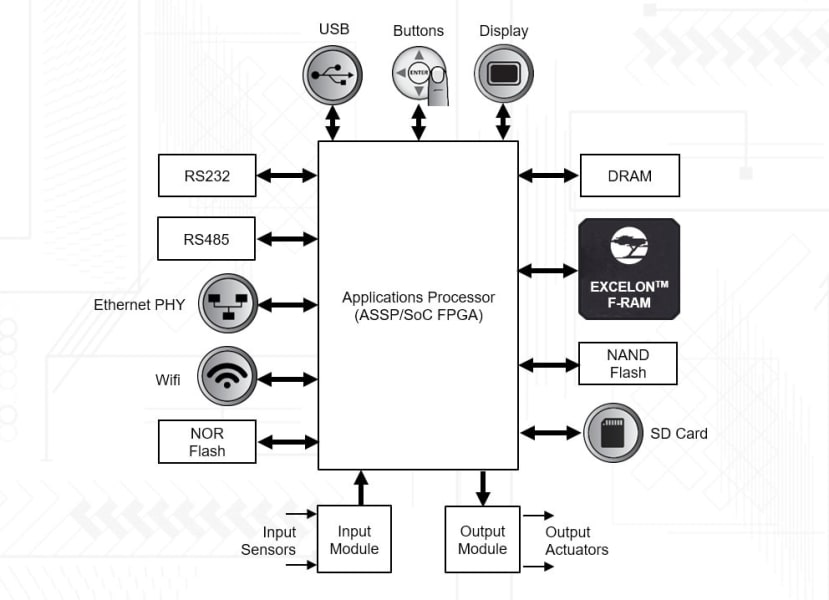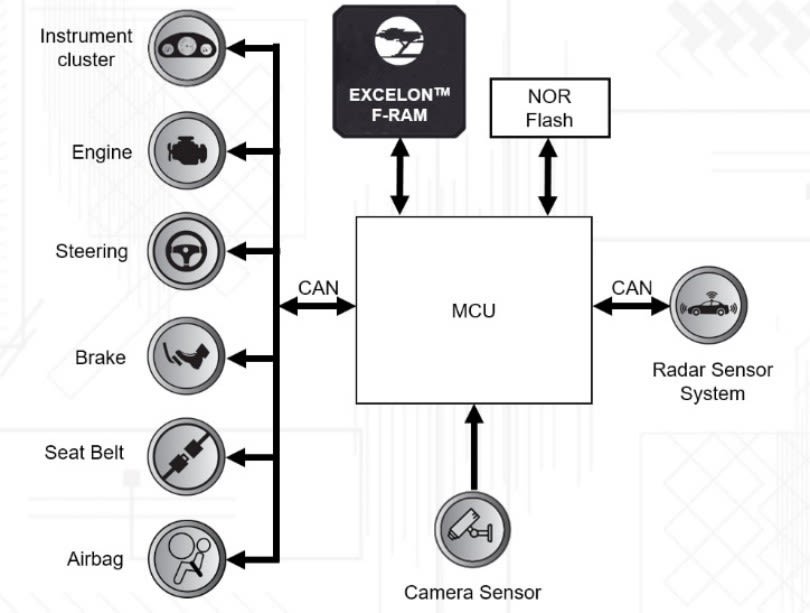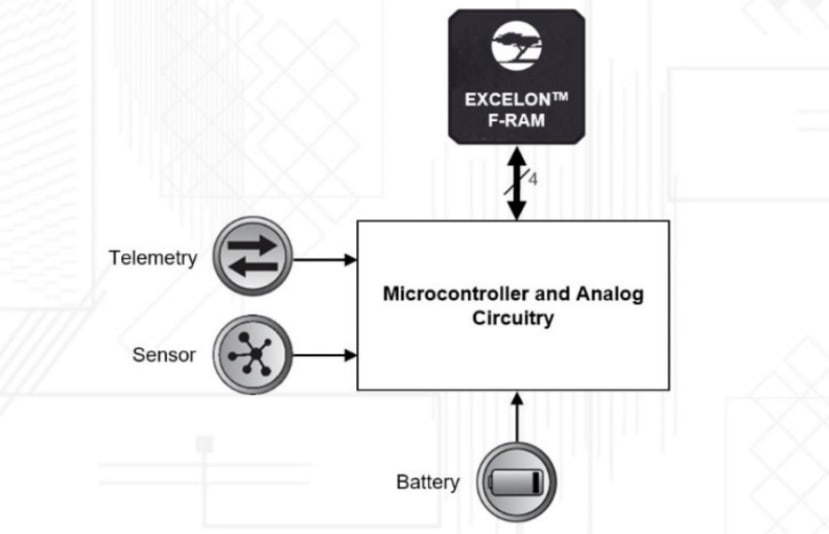The industry’s lowest-power mission-critical nonvolatile memory
Follow articleHow do you feel about this article? Help us to provide better content for you.
Thank you! Your feedback has been received.
There was a problem submitting your feedback, please try again later.
What do you think of this article?
With its first appearance in the master thesis of an MIT student in the 1950s, followed by commercialisation almost 40 years later, Ferroelectric RAM (F-RAM) is an example of non-volatile random-access memory technology that gained widespread popularity. Unlike competing technologies such as flash memory, F-RAM provides lower power usage, faster write speed as well as higher endurance cycles.
Excelon (194-8793) is Cypress’ newest generation of low-power FRAMs that are targeted at mission-critical applications, including medical devices, industrial and automotive applications.
Portable and implantable medical devices
Designing portable and implantable devices brings certain challenges. Specifically, the battery life of the device must be extended by minimising power consumption of components. Non-volatile density, as well as the write-cycle endurance of the memory, needs to be sufficient to enable continuous monitoring and data logging by the device. Lastly, portable medical devices tend to have restrictions in size and weight, hence the components must have a very small footprint.
Portable/implantable medical device block diagram (cypress.com)
The diagram above demonstrates a typical circuit of a portable/implantable medical device. The data captured by sensors (e.g. pulse or blood pressure data) is stored and then transmitted to the cloud for remote monitoring of the patient. Excelon LP series of low-power FRAMs offer a perfect solution for local data storage required by this application. These series use 200 times less energy than EEPROM and 3,000 times less energy than NOR Flash. The chip supports densities up to 8Mb and unlimited endurance cycles (1000-trillion write cycles or logging of data every millisecond, for more than 3,000 years). Excelon LP is available in an 8-pin CQFN package with a small footprint size of ~10mm2.
Industrial
Programmable Logic Controller (PLC) is one of the common digital computers used in industrial process control, along with other systems such as supervisory control and data acquisition (SCADA) systems and distributed control systems (DCS). The safe operation of the factory depends on the system state data captured by PLCs. The data needs to be logged continuously to ensure that system failure or power loss is detected automatically. Therefore, design challenges for memory chip of PLCs will include being able to capture data in real-time, especially during the power loss. Write-endurance of non-volatile memory must also be at least 15-20 years for harsh industrial environments (at 85°C).

This block diagram for a typical PLC application shows several types of memory chips connected to the processor. Some of them will be used for storing executable code for running the instructions on the processor, others are for initial boot up, whereas some are for data logging. Excelon Ultra F-RAMs are ideal for applications where the data needs to be logged instantly and reliably if power is lost. Excelon Ultra offers a low-pin-count 108 MHz QSPI interface, data retention of up 100 years with 100-trillion write cycles at 85°C and eliminates the need for back-up batteries.
Automotive
Another application of FRAMs is in the automotive market, specifically, in advanced driver assistance systems (ADAS) that are designed for improving driver’s safety while driving or parking. The system uses various sensors, including cameras and radar sensors, to assist the driver to avoid collisions and reduce the severity of accidents. The data from those sensors is logged into external RAM or volatile Flash memory. However, the data needs to periodically backed up onto volatile memory to ensure that critical system data is saved regardless of power loss. Excelon Auto FRAM’s instant write capabilities allows capturing of the data from cameras and other sensors instantly, without additional components for power back-up. The data prior to power failure due to an accident can be then recovered and analysed to identify the cause of the accident.

Excelon Auto FRAMs rely on NoDelayTM writes to capture data on the fly and it is available from 2Mb up to 8Mb density. The products from this family have an endurance of 10-trillion write cycles to log data every 100 microseconds for 20 years. The design of Excelon Auto is AEC-Q100-qualified and complaint with Functional Safety standards (ISO 26262).
If you would like to get started with prototyping, Cypress’ PSoC® 6 WiFi-BT Pioneer Kit (175-4669) , which features Excelon FRAM along with PSoC 62 MCU and the Murata LBEE5KL1DX Module, is available through RS Components.

